Love Beyond the Fight
"We can serve together. We can keep each other accountable. That’s what soldiers do!”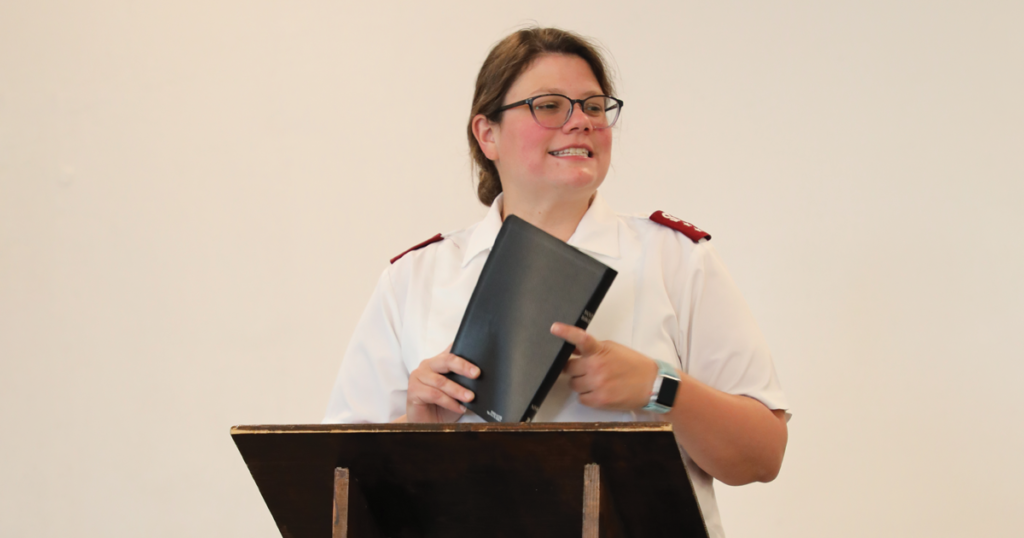
Captain Liz Blusiewicz is teaching the faithful soldiers in Huntington, West Virginia, the art of intense ministry. Spreading the Gospel is a constant struggle in the heart of Appalachia, and Blusiewicz’s ministry style matches the culture of this part of the country.
“Ministry here is hard,” Captain Liz admits. “If you ask someone how they’re doing, they won’t say they’re blessed or something like that—they’ll tell you exactly, and probably more than you want to hear.” But Captain Liz is up to the challenge.
“In my officership, I want to hold people accountable. In ministry, you sometimes have to have confrontation with people. It’s just the way it is,” she says, laughing. “People don’t always agree with each other, feelings get hurt. It might be easier to walk away or just ignore the problems, but that’s not ministry. When families fight, they prove their love for one another by not giving up. And I’ll never give up on my people. They know I won’t!”
Acts of love, even if they cause a little discomfort, are the secret to the Huntington Corps’ success over the last six years since Blusiewicz arrived.
“Ministry is loving people past the point of the fight. People get upset, especially anytime you confront folks with sin. They resist. But I want them to know that I’ll never stop beating on their doors. If you want to be mad at me for a few weeks, that’s fine—but I won’t give up on loving you!”
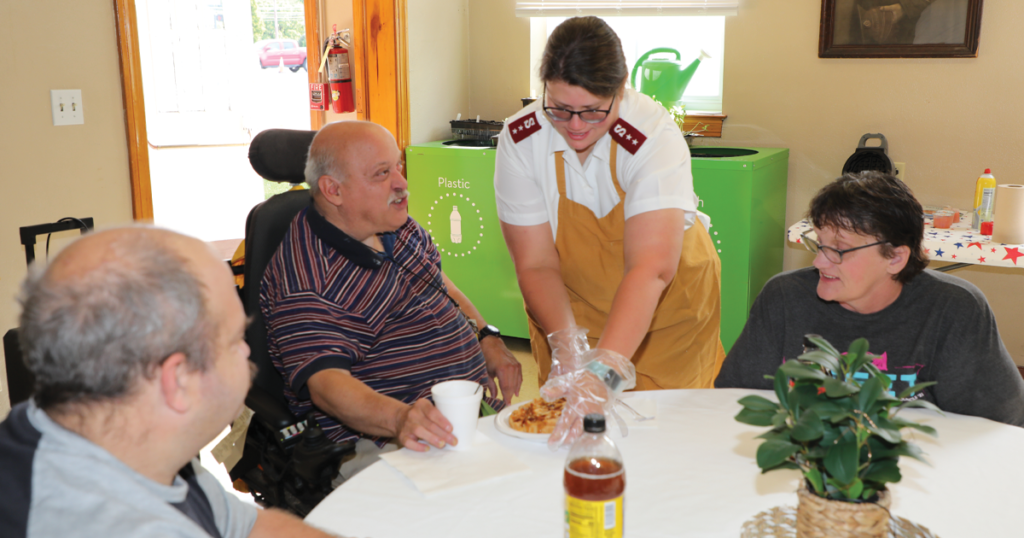
Captain Liz’s leadership style proved unique from the start. One of her first changes was renovating the chapel with a much lighter ambiance. That change from a dark room to a light one became the theme of the corps’ mission and ministry—both inside the building and out in the four counties of this command.
“We’re always after a spiritual change from darkness to light,” she explains. “Salvationism is a fight for souls, and I’m relentless in that.”
Mary Merritt, a Huntington soldier, admits she had doubts about Captain Liz when she arrived. “I wasn’t sure about her in the beginning because I don’t like change,” Mary says. “I wondered whether a young offi cer—and single too—could build a corps as she has. But we have good leadership. People will always step up when there is good leadership!”
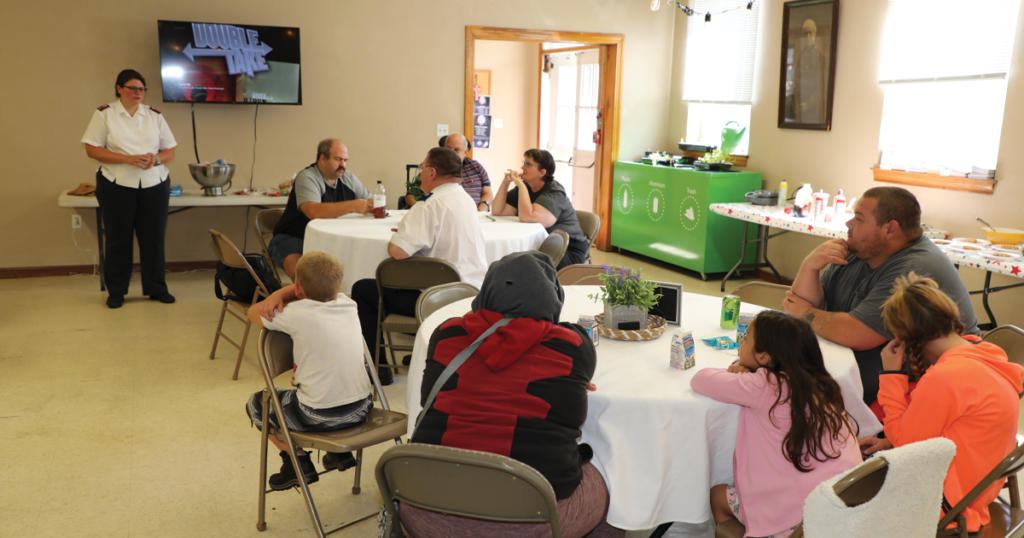
The rest of the corps shared Mary’s opinion. When Blusiewicz began explaining what the Lord had laid on her heart to do, a lot of the soldiers were inspired to act boldly in their community. Blusiewicz began assigning soldiers to diff erent positions. They began filling and distributing food boxes, increasing from 20 to 80 food boxes per week. Volunteers kept the new food pantry well-stocked. Others joined Blusiewicz in taking the Army’s emergency canteen to hand out food and drinks on Sunday nights for outdoor Gospel meetings at a popular park.
“Someone suggested a Sunday morning coff ee time, before Sunday School, where anyone could come and enjoy some fellowship time,” she says. “One soldier suggested that we open a clothing room during that same time so if folks needed something, they could pick it out then rather than making an appointment with our caseworker during the week.”
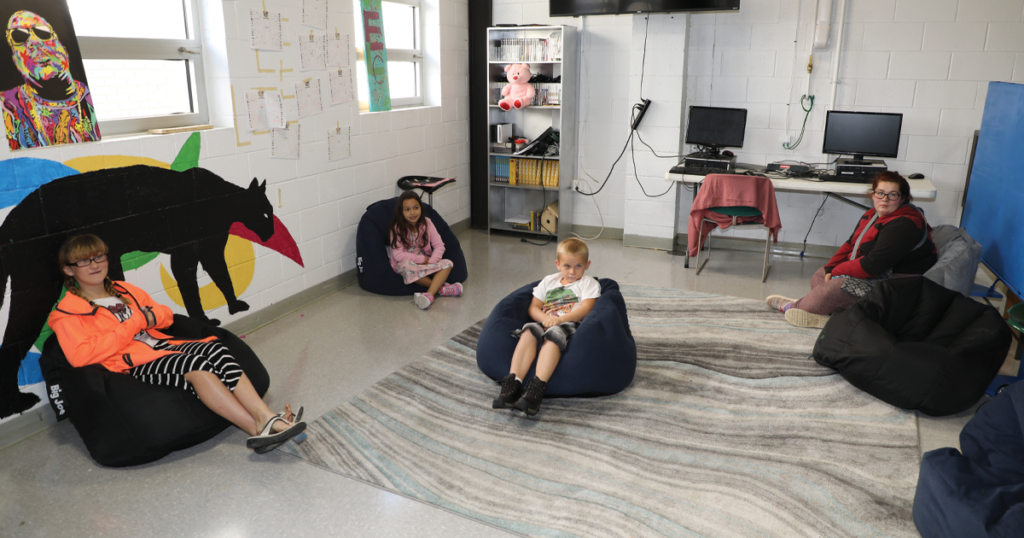
Captain Liz is incredibly open to ideas and suggestions from her soldiers: “Salvation Army soldiers are capable of really incredible things. And my soldiers come up with crazy ideas sometimes, but nine times out of ten it works out better than anything I could have come up with. Ministry doesn’t have to be your idea. You can let them do it. If it doesn’t work, then we can all learn from it and move on to something else.”
One such ministry, “Salvation Vocation” was originally going to be a music instruction program. But after a mission planning study, the high school superintendent suggested a vocational approach. “He told me there were many music programs in the schools, but what students need is training in trades like carpentry, electrical work or plumbing. There is a terrible opioid abuse problem and learning trades could help redirect kids from making wrong choices.”
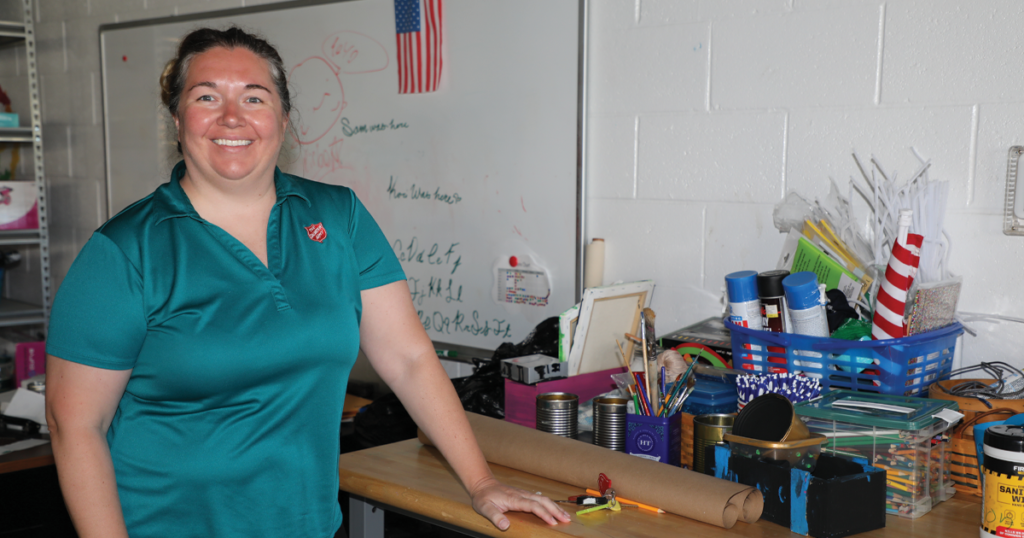
Overseen by expert volunteers, Salvation Vocation students have made picnic tables for the YMCA, storage sheds for non-profi ts, and twin bed frames for kids in foster care. Wal-Mart donates tools and 84 Lumber sends spare lumber to the program.
One mid-July weekend, the Potomac Division’s Music Conservatory came to Huntington for “Salvation Army Night.” The Sheriff ’s Department escorted the 60 musicians, accompanied by the Huntington soldiers, in a four-block march of witnesses from the corps building to the downtown area, to a weekly event called “Ninth Street Live.”
“Imagine a thousand people out for dinner, drinks, listening to live music—and here comes The Salvation Army, with fl ags, uniforms, and performances,” beams Captain Liz. “People were just out there enjoying their picnics. They had no idea we were coming with young musicians and gospel arts students performing for Jesus!”
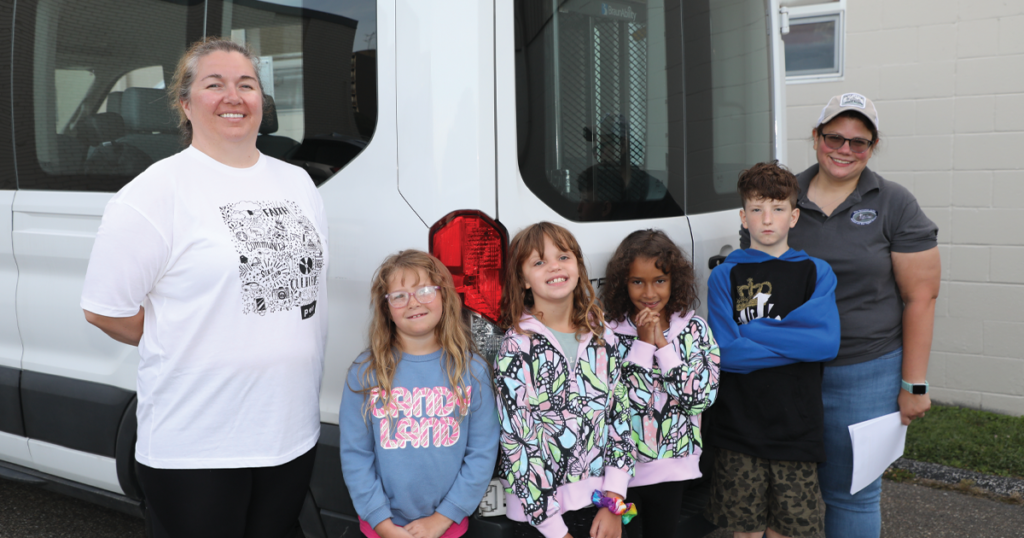
This year, the Huntington Corps is celebrating 120 years; and its soldiers are helping Captain Liz come up with “120 Projects” during 2022. That’s an average of ten per month—a tall order. But so far, Captain Liz and her soldiery are pulling it off .
“Salvationists in West Virginia feel forgotten sometimes,” Captain Liz explains. “It’s a remote part of the country, but that doesn’t mean there isn’t real ministry here. In Huntington, we’re learning that we might not always see eye to eye, but we can still love each other. We can serve together. We can keep each other accountable. That’s what soldiers do!”







